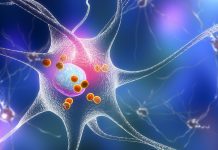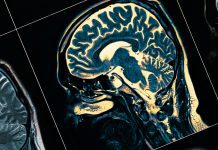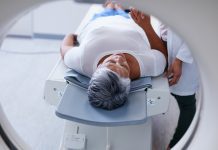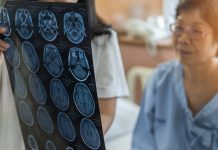Dementia Related News
Dementia Network Plus: £1.7m funding to reduce dementia risk
Researchers at UCL will receive funding of over £1.7 million to set up and lead a new national Dementia Network Plus that aims to...
Dementia incidence rate increased in England and Wales after 2008
By studying the dementia incidence rate since 2008, a UCL-led study has found that up to 1.7 million people could be living with dementia...
Research into modified RNA could revolutionise Lewy body dementia treatment
New research suggests how toxic proteins in the brain could be used to develop targeted Parkinson’s disease and Lewy body dementia treatments.
Experts from the...
Supporting medicine use in older people with sensory impairment
The University of Strathclyde has launched a free online course to support medicine use in elderly patients with sensory impairment.
The MOOC (Massive Online Open...
New hope for lacunar stroke treatment
Two cheap and common drugs could be repurposed as a new treatment for lacunar stroke, a specific type of stroke linked to nearly half...
Diabetes and high systolic blood pressure can increase dementia risk
People with multiple cardiometabolic conditions such as diabetes and high systolic blood pressure are more likely to develop dementia, according to the University of...
A new blood test can track neurodegeneration in Alzheimer’s disease
A new blood test has been developed that can track and follow neurodegeneration in Alzheimer's disease patients.
The new blood test, which can exclude other dementias,...
Can hormone replacement therapy prevent Alzheimer’s in women?
Hormone replacement therapy could reduce the risk of Alzheimer’s disease in women, according to the University of East Anglia.
A new study has shown that...
Can managing emotions prevent neurodegenerative diseases?
Researchers from the University of Geneva (UNIGE) have suggested that managing emotions can help limit neurodegeneration and pathological ageing.
The researchers studied brain activity in...
Cardiometabolic disease could increase the risk of dementia
Being affected by cardiometabolic disease such as diabetes, heart disease and stroke, has been linked to an increased risk of dementia and Alzheimer’s disease.
A...
Navigating menopause and young-onset dementia
Given that around 70,800 people in the UK are living with young-onset dementia, we spoke to Consultant Admiral Nurse Jules Knight about the challenges...
Can talk therapy improve the mental health of dementia patients?
University College London researchers explored whether talk therapy can benefit people living with dementia if they also suffer from anxiety or depression.
Mental health problems...
Researchers discover new target for Alzheimer’s treatment
An international study involving University of Liverpool researchers has found a new potential target for Alzheimer’s treatment.
New research shows that medin, a protein, is...
Researchers develop new MRI Alzheimer’s test
An exciting MRI Alzheimer’s test by the University of Aberdeen will be trialled for the first time, providing new hope to patients.
A newly developed...
Does the Mediterranean diet ward off dementia?
A new study finds that the Mediterranean diet is not linked to a reduced risk of dementia, despite research suggesting otherwise.
In a new study...
Signs of dementia can be identified nine years before diagnosis
Researchers from the University of Cambridge have found that signs of dementia can be detected in patients as early as nine years before an...
Dementia diagnosis is more likely in people taking multiple medications
A dementia diagnosis is more likely in people who are taking three or more medications, according to an international research team.
The study is the...
WHO launch the first blueprint for dementia research
The World Health Organization (WHO) has released the first blueprint for dementia research, guiding policymakers.
Dementia continues to pose a challenge to global healthcare systems....
Bad dreams may be the early signs of dementia
New research from the University of Birmingham suggests that having frequent bad dreams in middle age may be one of the early signs of...
UCL researchers’ trial anti-sickness drug for dementia hallucinations
Ondansetron, an anti-sickness drug used in the NHS for cancer patients could treat hallucinations in dementia patients.
University College London is trialling an anti-sickness drug...





















